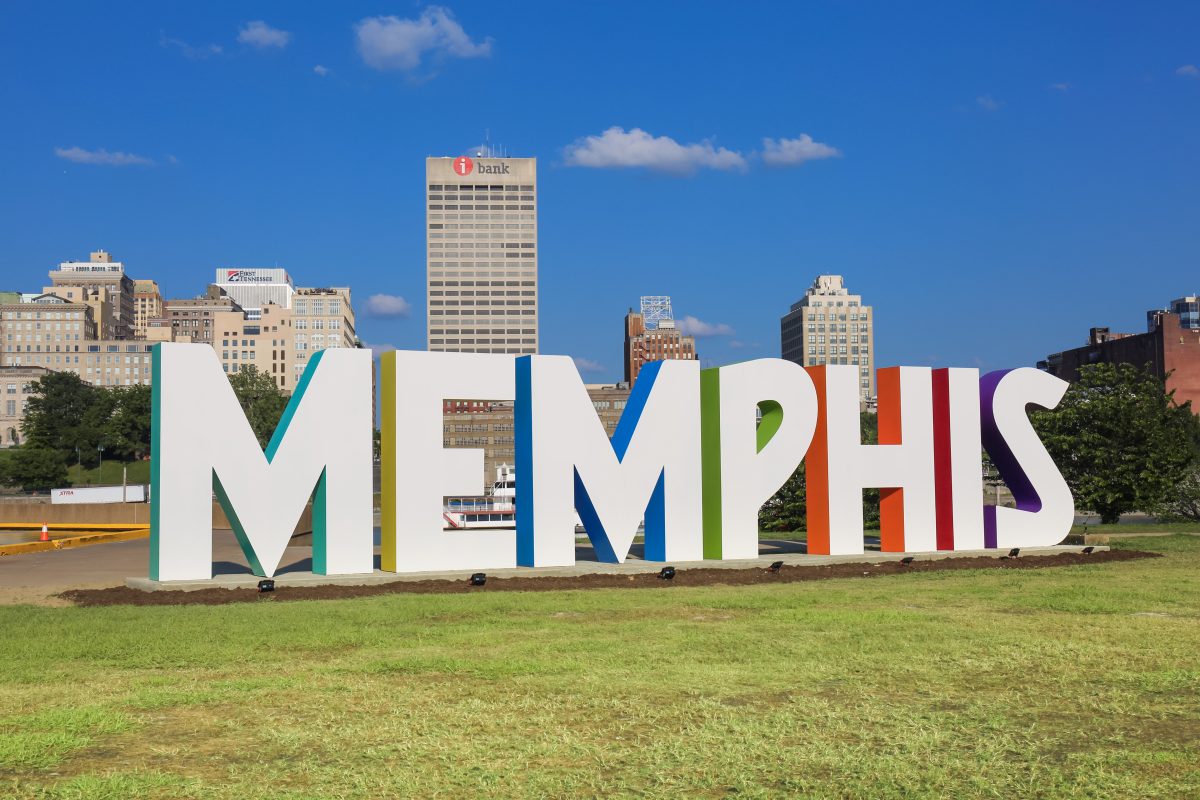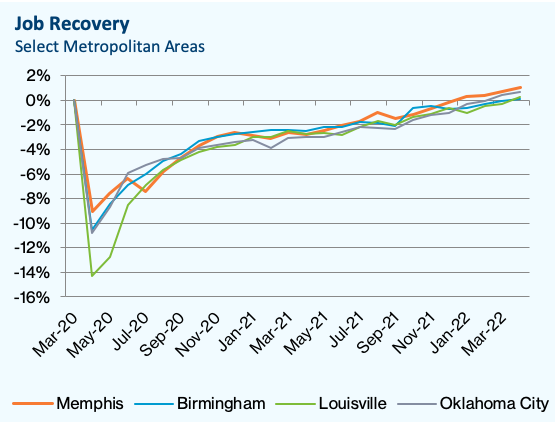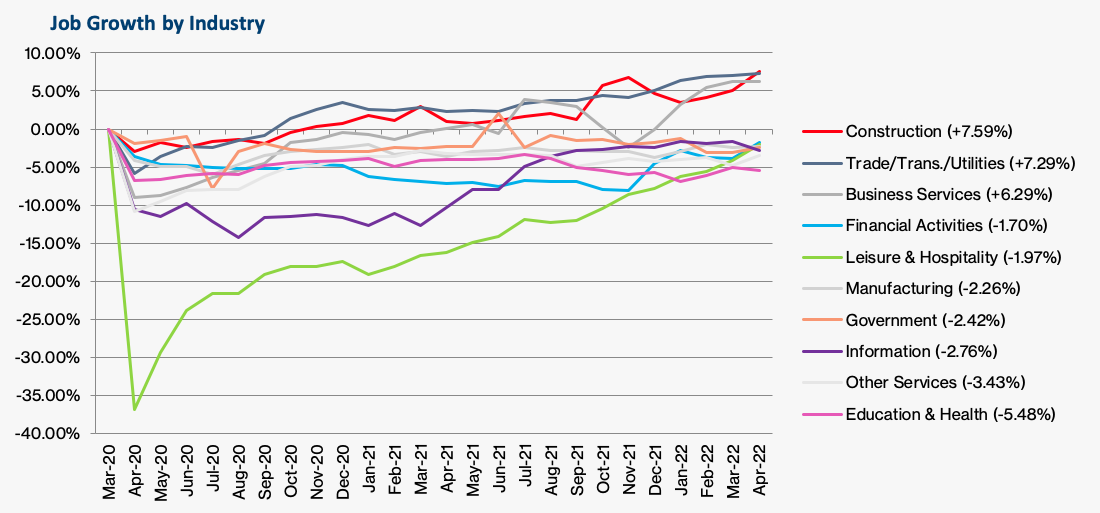The man who electrified much of the nation early in 2000 while running for president made Memphis the stage on Monday for what was billed as the unveiling of his economic program as part of a second campaign for the presidency.
Speaking at the University of Memphis Holiday Inn before an overflow audience of Economics Club members and other spectators, Arizona senator John McCain espoused traditionally conservative fiscal views and promised, if elected, not “to waste money” or “to let the government get in the way of making an honest dollar.”
McCain’s laissez-faire approach to economics also included pledges to restrict government entitlements, to revamp an “unsustainable” Social Security system, to reform the nation’s tax structure, and to oppose protectionist measures, advocating job-retraining programs for laid-off workers in obsolescent industries.
All in all, it was a relatively restrained performance that earned respectful attention and applause from an audience that included FedEx founder (and McCain supporter) Fred Smith, who introduced the candidate, former Texas senator Phil Gramm, and current 9th District congressman Steve Cohen.
McCain still gives off flashes of the candid, irreverent self that, early in the presidential campaign season of 2000, captivated voters across the political spectrum. In a media session with reporters following his ballroom speech, the senator made a point of being courtly, shaking hands with as many of the media attendees as possible.
Asked about his relatively dismal fund-raising so far (he is in third place in Republican ranks, behind both Massachusetts governor Mitt Romney and former New York mayor Rudy Giuliani), the senator said flatly, “Because I didn’t do a better job.” Asked why that was, McCain answered, “Because I’m not competent enough, I guess.”
It was hard to tell whether he was being tongue-in-cheek or merely stating a hard, if unpleasant, fact. He followed that up with the bland-sounding assurance that things were “moving forward” and that he was “very happy with where our campaign is today.”
Under the circumstances, it was impossible not to recall a prediction made at Rhodes College two weeks ago by veteran Democratic pol James Carville, who included among a series of predictions for the campaign year his guess that McCain’s presidential candidacy would be over with by the time of the Iowa caucuses in early 2008.
“He looks tired,” Carville had said. “He’s trying to be an establishment guy but can’t play the role. He hasn’t raised any money, and the Republicans don’t care for him.”
If “tired” was arguably too strong a word to describe McCain during his Memphis appearance, then certainly he appeared relatively unanimated. Perhaps that was due merely to the subject matter he had resolved to focus on (they don’t call economics “the dry science” for nothing). And his Economics Club address had after all been closer to a lecture appearance than a campaign rally.
But there was some ghost of the past that was playing in Monday’s scenario, as well. There was just the slightest shadow there of presidential candidate Bob Dole, circa 1996. Eight years earlier, Dole had run as the straight-talking alternative to his party’s status quo, and he won the Iowa caucuses over the favored Republican candidate, then vice president George Herbert Walker Bush.
A week later, though, Dole’s momentum had been stopped in New Hampshire by a concentrated slash-and-burn attack from Bush that caused Dole to lament that his adversary was “lying about my record.” Bush won big there and went on to gain the Republican nomination and the presidency.
Dole did not resurface as a presidential candidate until eight years later, when he’d made himself a loyal soldier of the Bush administration and, after getting the nomination, ran unsuccessfully as the GOP establishment candidate against the incumbent president, Democrat Bill Clinton.
With the exception that McCain has so far been running behind in his nomination race and that (consistent with Carville’s judgment) he seems still not to have gained much traction with his party’s establishment, McCain’s rerun, eight years after his first presidential try, has an uncanny resemblance to Dole’s experience.
In 2000, the reform-minded McCain, who won New Hampshire in a breeze, seemed almost to rise above issues of party and ideology. He was badly trashed by a disinformation campaign in South Carolina, however, and never quite regained his footing against George W. Bush, son of the former president, who, like his father, went on to win both the GOP nomination and the presidency.
McCain’s response over the next eight years was the same as Dole’s had been — to hunker down and prove himself loyal to the man who had beat him. In McCain’s case, that has included becoming the staunchest defender of the Iraq war at a time when national sentiment has clearly been running against it.
Though he was careful not to minimize the precarious and dangerous state of things in Iraq at the moment, the senator expressed both continued commitment to the military effort there and guarded optimism about the current “surge” effort.
It is too early to pronounce judgment on McCain’s chances in 2008, but the reminders of Dole’s experience are certainly there — even in the slightly cramped posture of the Arizona senator, the heroic survivor of long imprisonment and torture in North Vietnam.
Like Dole, wounded badly during World War Two and partly crippled as a result, McCain wears his heroic personal history — and his pain — in his very being. It remains to be seen how close the parallels to Dole’s political fate will be.
• Meeting in caucus last Thursday, the Democratic members of the Shelby County legislative delegation selected the three Democrats who will serve on the county Election Commission: They are (in order of votes received): Shep Wilbun, holder of several previous public offices; Myra Stiles, a longtime former commissioner; and O.C. Pleasant, holdover from the current commission and another longtime member.
Pleasant, who served as Election Commission chairman for many years, was tied with another aspirant, Joe Young, before Democratic Senate leader Jim Kyle broke the tie in the incumbent commissioner’s favor. The three commissioners-to-be were selected from among an original field of 15 applicants, who were narrowed down to five finalists the week before last. The two Republican commissioners, Nancy Hines and Rich Holden, are returning.
• Circuit Court judge D’Army Bailey is one of three jurists nominated by the state Judicial Selection Commission as prospective members to fill a vacancy in the Tennessee Supreme Court left by the retirement of Justice Adolfo Birch. The other nominees are Judges William Koch of Nashville and Creed McGinley of Savannah.
Governor Phil Bredesen had rejected the first group of candidates sent him by the commission last year as well as a second list that included a holdover from the first group. The state Supreme Court would eventually sustain Bredesen’s insistence on seeing a new list with all new names, and the current list is the result.
Bredesen has promised to name off the candidates from the list, and Bailey’s chances are rated as being good, based on the fact that he, like Birch, is an African American, and some believe the seat should be reserved for a black jurist.
• Another Memphis-based judge to receive a signal distinction of late is U.S. district judge Bernice Donald, who was recently named secretary-elect of the American Bar Association. Donald will be the first African American to become an officer of the A.B.A. if her nomination is approved, as expected, at the organization’s August convention in San Francisco.



